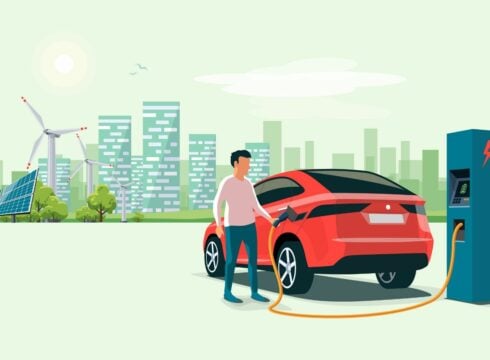ACME Cleantech Solutions, Amara Raja Advanced Cell Technologies, JSW Neo Energy, Reliance Industries are among the companies which submitted bids for a cumulative capacity of 70 GWh
The Union Cabinet approved the PLI scheme for manufacturing advanced chemistry cell (ACC) batteries in May 2021 with an outlay of INR 18,100 Cr
Earlier, Ola Electric, Rajesh Exports, and Hyundai Global Motors Company emerged as the three beneficiary entities for the scheme for a total capacity of 30 GWh
Inc42 Daily Brief
Stay Ahead With Daily News & Analysis on India’s Tech & Startup Economy
The Ministry of Heavy Industries (MHI) has received seven bids for the global tender issued by it for rebidding for production linked incentives (PLI) for 10 GWh advanced chemistry cell (ACC) manufacturing.
In a statement, the ministry said that ACME Cleantech Solutions Pvt Ltd, Amara Raja Advanced Cell Technologies Pvt Ltd, Anvi Power Industries Pvt Ltd, JSW Neo Energy Ltd, Reliance Industries Ltd, Lucas TVS Ltd, and Waaree Energies Ltd submitted bids for a cumulative capacity of 70 GWh.
The tender was announced on January 24, 2024 and the window for submitting bids was open till Monday (April 22). The technical bids were opened on Tuesday (April 23).
The Union Cabinet approved the PLI scheme for manufacturing advanced chemistry cell (ACC) batteries in May 2021. The scheme, with an outlay of INR 18,100 Cr aims to achieve manufacturing capacity of 50GWh of ACC and 5 GWh of “niche” ACC.
The first round of bidding for the scheme concluded in March 2022. Following the bidding process, Ola Electric, Rajesh Exports, and Hyundai Global Motors Company emerged as the three beneficiary entities for the scheme for a total capacity of 30 GWh.
Subsequently, Ola Electric secured more incentives from the government under various schemes post 2022.
In January this year, the IPO-bound EV manufacturer received a domestic value addition (DVA) certificate under the PLI scheme for automobile and auto component industry. Its vehicle models were also subsidised under the FAME-II scheme.
Earlier this month, the company also received the Centre’s nod to claim subsidies for selling electric two-wheelers under the recently-launched Electric Mobility Promotion Scheme (EMPS), 2024.
The Bhavish Aggarwal-led startup also cited its reliance on FAME-II and other subsidies as a key risk factor in its DRHP.
It is pertinent to note that ACCs can store electric energy either as electrochemical or as chemical energy and convert it back to electric energy as and when required. They can be used in consumer electronics, electric vehicles (EVs), advanced electricity grids, solar rooftop, among others.
EV manufacturers believe that the PLI scheme for battery storage has the potential to bring down EV costs as most of the demand for ACCs was met through imports prior to the launch of the scheme.
The latest development comes at a time when EV adoption is on the rise in the country. In order to further promote vehicle electrification, the MHI is also working on setting up a task force which would work with various agencies.
Note: We at Inc42 take our ethics very seriously. More information about it can be found here.


